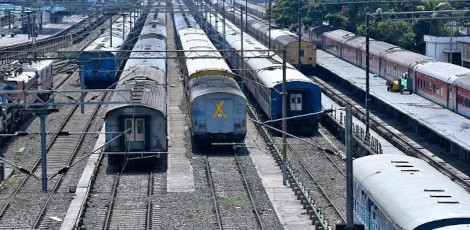No. of views : (3734)
Diabetes and hypertension driving kidney disease in Tamil Nadu
Posted on: 08/Mar/2018 1:20:15 PM

Diabetes and hypertension are driving the rising incidence of kidney disease in Tami Nadu, with chronic kidney disease (CKD) afflicting 10% of the state�s population, said Dr. K Sampathkumar, Head, Dept. of Nephrology, Meenakshi Hospital & Research Centre, Madurai, on the eve of World Kidney Day.
While diabetes and hypertension continue to be the commonest cause of CKD in Tamil Nadu, other risk factors include obesity, late diagnosis, high cholesterol levels, smoking, alcoholism, high intake of salt (over 12-15 gm a day) and the use of over-the-counter (OTC) pain killers. Dr. K. Sampathkumar said: �Tamil Nadu has one of the highest incidence of diabetes in India, and up to 30 percent of diabetics develop CKD. A family history of renal disease is a risk factor. Control of blood sugar and blood pressure is vital for long-term kidney health. High salt intake increases the incidence of hypertension, which is a forerunner of renal damage. Obesity leads to an adverse hormonal milieu in the body, which can damage the delicate filtering structures present in the kidneys. In people who are extremely obese, surgical bypass can improve the kidney function.�
Talking about kidney disease in rural areas, Dr. K Sampathkumar said: �Water scarcity, a distaste for water due to its hardness, chemical toxins from insecticides and industrial waste dissolved in water, and hard manual labour, all combine to threaten the kidney function of people at the village level in Tamil Nadu and Andhra Pradesh. To avoid this, mass screening for kidney disorders is required in villages, along with preventive measures such as provision of safe drinking water and preventing chemical pollution of ground water.�
Dr. K. Sampathkumar added: �CKD is a progressive disease with deadly consequences for both heart and kidneys. In fact, less than 20% of those destined to the end-stage renal disease (ESRD) reach the end stage, as they die much earlier due to heart disease. In its early stages, CKD leaves no footprints and is entirely silent. It can only be detected through regular health screening with urine and blood analysis.�
The precise number of CKD patients is not known with certainty since an organized registry of CKD doesn�t exist anywhere in India. Dr. K. Sampathkumar said: �The annual incidence rate of End Stage Renal Disease (ESRD), which is the stage at which a patient needs dialysis, is 150-200 per million population, while its prevalence is 800 per million population. The number of patients requiring advanced treatment for kidney failure in the form of dialysis or kidney transplantation is likely to be 65,000 in Tamil Nadu, with 16,000 new patients added every year. Yet, the number of patients undergoing dialysis is not even 10% of the total number who need it. Also, less than 1% of these patients undergo kidney transplantation. These are worrying statistics. Women have even lower share of dialysis and kidney transplantation due to social, economic and cultural factors which hinder their access to such treatments.�
While kidney disease is no respecter of age or gender, glomerulonephritis (acute inflammation of kidneys) is particularly predominant in young males of 20-40 years of age in India. �This disease has a a genetic basis, and Indians are at a higher risk of this disease. This is a silent disease, producing renal failure within a decade of onset,� added Dr. K. Sampathkumar.
This year, the World Kidney Day and International Women`s Day both fall on March 8. Dr. K. Sampathkumar said that reflex nephropathy, an auto-immune disease called SLE, and hypertensive disorders of pregnancy are the main risk factors specific to women for kidney disease.
Tips from Dr. K Sampathkumar for preventing kidney disease:
Early diagnosis of CKD is crucial before substantial kidney damage has occurred. There are multiple ways in which further kidney damage can be prevented:
� Control blood sugar. This can be done through diet, exercise and medicines.
� Control high blood pressure. Salt intake has direct link with increasing blood pressure. Hence, consumption of added salt in food should be curtailed.
� Eat more fruits and vegetables. Potassium reduces blood pressure and is helpful in the long run for kidney patients. However, those suffering from advanced renal failure, potassium is harmful to the heart. Hence, potassium intake should be individualised depending on the renal function.
� Drink enough water to produce 2-2.5 litres of urine per day. Excessive or too little water is harmful to kidneys.
� Avoid over-the-counter pain killers and excessive use of non-steroidal anti-inflammatory drugs
� Treat kidney stones promptly through surgery or drugs as long-term obstruction in the outflow tract of urine results in kidney damage
� Hypertension related to pregnancy should be managed effectively to safeguard kidney health of both mother and child
� Neutralising excessive build-up of acids in the blood with sodium bicarbonate tablets has shown to be beneficial
� Aggressive management of urinary tract infections helps prevent kidney failure, especially in female patients of diabetes
Post your requirement - We will connect with the right vendor or service provider








